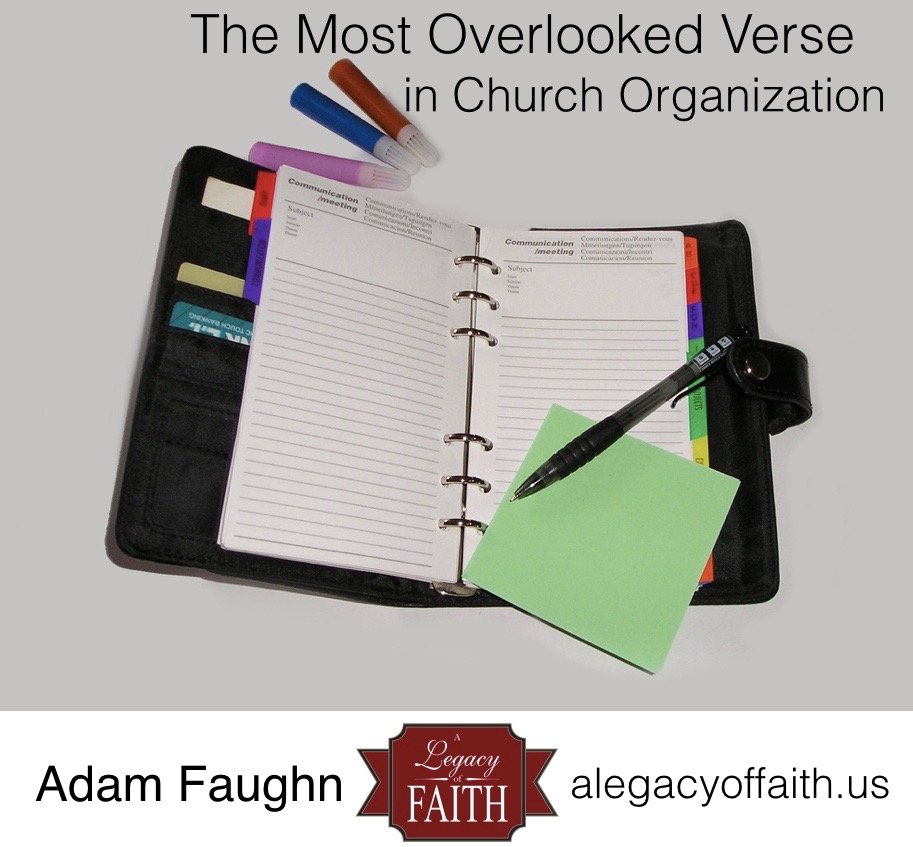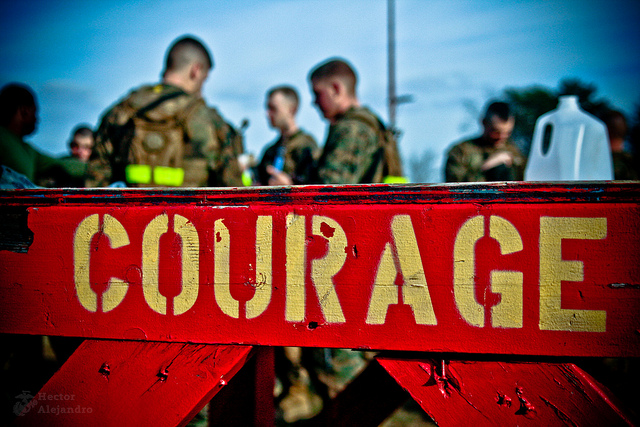The Most Overlooked Verse in Church Organization

For a congregation to please the Lord, we must follow His plan. God has not left it up to our own thinking as to how a congregation of His people is to be organized. Philippians 1:1 makes it clear that there are “overseers and deacons” along with all the saints. First Timothy 3:1-13 and Titus 1:5-9 give us the qualifications for those men who would serve in the roles of elder and deacon.
There are no two ways about it: God has a pattern for the organization of His church.
That said, a congregation cannot just give men the right title and then claim to have it all figured out! Too often, there are congregations that have elders and deacons–thus, they are Scripturally organized–but the members are frustrated because they do not know what these leaders expect them to do.
That’s where one verse comes into play. It is a verse that needs to be studied and applied in far more congregations. If applied, it would make a world of difference in the desire to serve of the members.
In Ephesians 4, Paul has written about how there are different leaders (in the First Century church, there were apostles and prophets; in the church today, there are evangelists and shepherd-teachers). Then, however, he gives their role, and it is one of the most overlooked verses in church organization that I can think of:
“To equip the saints for the work of ministry” (Ephesians 4:12).
“Equip.” “Equipping.” “Perfecting.” All these are translations of the first part of that verse.
We need to avoid just telling people what to do; we need to equip them to do it!
What Does This Look Like?
How could this play out in the life of a congregation? Here are a few examples:
How many members know they are to be striving to win lost souls to Christ, but are frustrated? Week after week, they are told from the pulpit that they are to be evangelists, too. However, we need give them some method or training to help them do that task! We are not equipping the saints for the work of ministry.
Take your Bible school program. Some sweet Christian lady agrees to teach a class of 5- and 6-year-old students and wants to give her time to that task. So, we hand her a book and just let her go. Instead, there needs to be some training. What do the elders want to see accomplished in that class, and how can a more experienced teacher help a new teacher meet those expectations?
When we let a Christian man lead singing or read Scripture, do we just sign them up and let them go? Instead, there needs to be some training, not so they are professionals and not so they are just robots who all do everything the same way, but so that there is excellence in what we do. They should have every advantage of knowing how to do that task well before they ever step up in front of the congregation.
…and the examples could go on and on.
It Starts with Leadership
What I am suggesting is hard work, no doubt. But elders should take the time to evaluate every aspect of the work of a congregation and ask the honest question: are we equipping people to fill their roles of ministry, or are we just signing people up?
An honest answer might be sad for many elderships, but it is worth the effort to come up with ways to teach, train, and evaluate the work of the church. It helps build confidence in those who serve. It provides a very clear level of communication (which is never a bad thing!). And it helps people know if they are succeeding or not.
But They Can’t Do It All!
Where I work and worship, we have about 220 people on Sunday mornings for worship. Contrast that with the 6 elders and 2 preachers we have, and that’s a weighty ratio! How can 8 people equip all 220 folks (and hopefully, continually growing numbers)? We can’t.
However, the elders can come up with the methods and expectations, then equip a few key leaders in how those things need to be done. Deacons, seasoned Bible school teachers, and older Christians are perfect choices to be the first to get the training and to know and understand the expectations and methods the elders would like to see done.
Then, those key leaders simply pass along that training and teaching to others. Soon, the methods, systems, and expectations are just part of the life of the congregation, and elders are able to truly “oversee” the work without micromanaging.
One More Thing: Evaluate!
If elders will do the hard work of coming up with expectations at the beginning, they have a way to evaluate how the work is going. They can also evaluate themselves to see if they are continuing to provide the equipping that people need to do the work. Do they have the necessary time? Facilities? Financial resources? Leadership? Communication?
Conclusion
All this may sound tedious, or even very “corporate,” but it is all part of what makes the work of the church more enjoyable for members and more easily overseen by elders. When expectations are clearly stated and members feel they are properly equipped to do the work, peace will reign in the congregation.
To Receive Every Post from A Legacy of Faith through Email for Free, Click Here
AUTHOR: Adam Faughn


